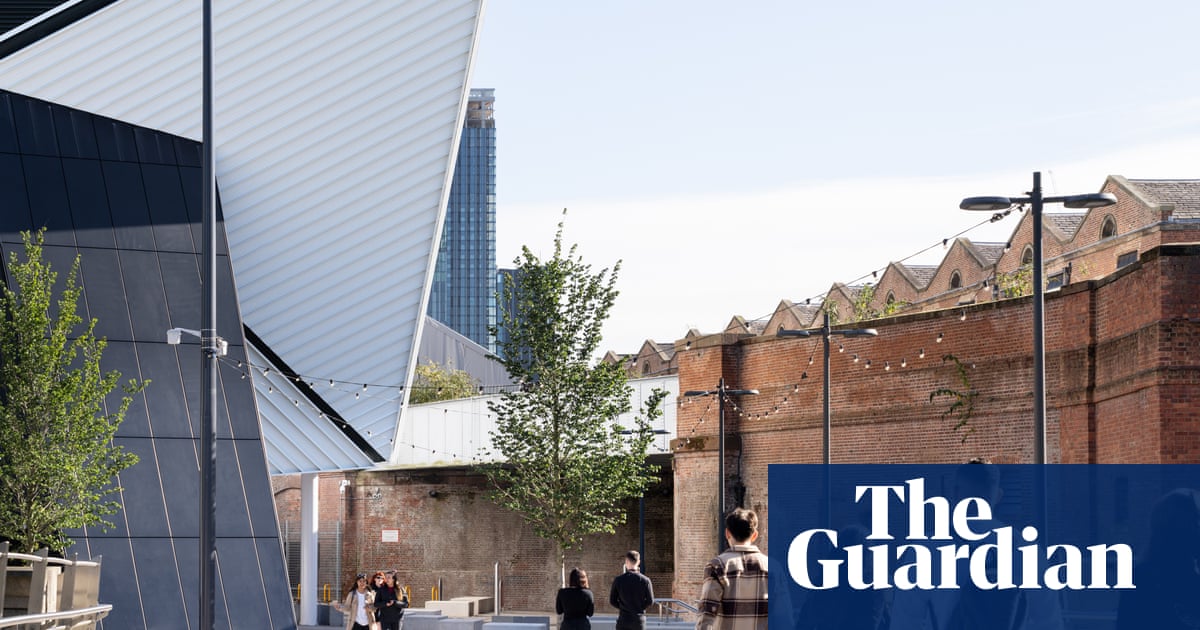It is £130m over its original budget, four years late and has a name not yet totally embraced, but Aviva Studios in Manchester, its backers say, will be unlike any other arts venue in Europe and its opening is “a landmark moment” for culture in the UK.
The £242m building on the site of the former Granada television studios officially opened on Wednesday evening with an immersive dance production based on The Matrix and directed by Danny Boyle.
“There is no denying it is a lot of money,” said Boyle of Aviva Studios’ cost. “You can go: ‘Why not build a hospital’, but the long-term benefit you get from the courage to press forward with this is incalculable.”
The capital project has received £99m of Treasury money and is the UK’s biggest investment in a cultural project since Tate Modern in 2000. As well as the Covid pandemic and inflation, the “complexity and unique” nature of the building contributed to spiralling costs much higher than the £110m estimate made in 2014.
…
The venue has a flexible 1,600-seat theatre and an open industrial warehouse-like performance space with a capacity for 5,000 people.
The idea is that artists will be able to create ambitious works of a kind not seen anywhere else in the world. The building’s architect, Ellen van Loon, said it had to be a place where “anything could happen”.
…
The building is a seen as a flag-bearer for attempts to better distribute public money to the arts across England. In the last spending round Arts Council England (Ace) cut £50m to arts organisations in London to support more groups outside the capital.
Nicholas Serota, the chair of Ace, said it was investing £130m a year in the north of England and £10m a year would go to the organisation that commissions the work for Aviva Studios, Factory International.
Factory International was the original name of the building until the council gave the naming rights to the insurance giant Aviva in return for £35m. Craig said it is “the largest private sector investment in arts and culture in this country,.”
Backers of the 13,350 sq metre building say it will add £1.1bn to the economy of Manchester and the surrounding region over the next decade. It will create or support an additional 1,500 jobs, they say.


